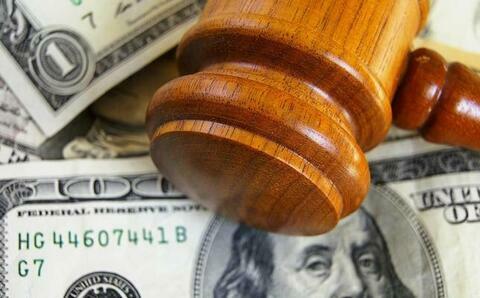By: Yuritza Arroyo
Federal authorities announced that a Florida man was charged for his role in conspiracies to pay illegal kickbacks and to commit health care fraud that caused at least $64 million in losses to federal health care benefit programs.
According to federal officials, James D. Feeley, 45, of Navarre, Florida, is charged by complaint with one count of conspiracy to violate the federal Anti-Kickback Statute and one count of conspiracy to commit health care fraud.
Officials say, Feeley appeared in Newark federal court and was ordered released on a $400,000 unsecured bond.
According to documents filed in this case and statements made in court:
Feeley and his business partner owned and operated medical marketing companies in Ohio that paid for prescriptions from telemedicine companies, which were then sent to pharmacies, including Apogee Bio-Pharm LLC in Edison.
From January 2016 to September 2020, Feeley and others worked with pharmacies, telemedicine companies, and doctors to unlawfully profit by paying kickbacks and bribes to telemedicine companies to generate prescriptions for their pharmacy clients to fill.
Court documents state, the telemedicine companies, in turn, paid kickbacks and bribes to doctors so that they would sign high volumes of expensive prescriptions.
The pharmacies then paid kickbacks and bribes to Feeley and his businesses for each referral.
Officials say, the kickback payments paid to Feeley’s businesses were a percentage of the reimbursements the pharmacies received from health care programs for filling the prescriptions generated by Feeley’s companies.
Feeley arranged to purchase federal health care beneficiary information (also referred to as “leads”), which usually included beneficiaries’ personal and health insurance information, from various sources, including overseas call centers and data brokers.
Feeley and others used this information to identify their targets for cold calling.
According to federal officials, Feeley and others targeted beneficiaries because they had insurance that would reimburse for expensive medications regardless of whether they had a medical need for those products.
Feeley and others employed “sales representatives,” frequently high school students without medical licenses or training, to call the beneficiaries. Feeley’s company often deceived beneficiaries into accepting medications by providing false and misleading information about the nature, cost, and efficacy of the medications they would receive.
Feeley and others knew that genuine doctor-patient relationships did not generate the prescriptions because they knew the doctors were paid to generate prescriptions and often did not have any contact with beneficiaries.
Officials say, Feeley and his conspirators knew the prescriptions they arranged were false and fraudulent.
Among other things, they complained to telemedicine companies when doctors did not approve prescription requests based on lack of medical necessity.
